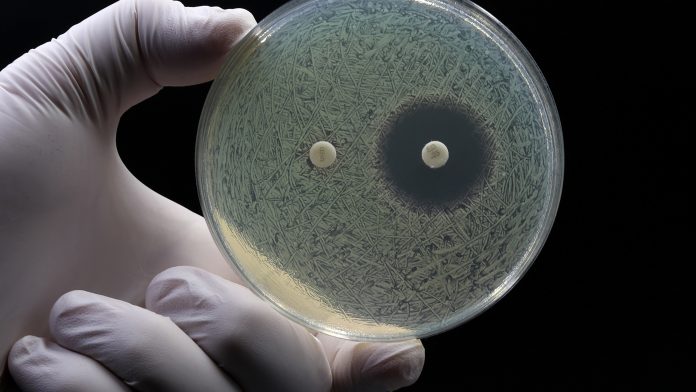New research suggests that the effects of climate change are rapidly increasing the threat of antimicrobial resistance.
Warming temperatures, increasing greenhouse gas emissions and rising sea levels are all believed to be exacerbating the threat of antimicrobial resistance globally.
The new findings will be presented by Professor Sabiha Essack at this year’s ESCMID Global Congress.
What is antimicrobial resistance?
Antimicrobial resistance is a natural phenomenon where microorganisms, such as bacteria, viruses, fungi, and parasites, evolve over time, developing the ability to withstand the drugs designed to kill them.
This resistance renders the medications ineffective, leading to prolonged illnesses, increased mortality rates, and heightened healthcare costs.
Antimicrobial resistance occurs primarily due to the overuse and misuse of antimicrobial drugs in humans, animals, and agriculture. When these drugs are excessively employed, microorganisms adapt, mutate, and become resistant, making infections harder to treat.
Factors contributing to antimicrobial resistance include inappropriate prescription practices, patients not completing their prescribed antibiotic courses, and the widespread use of antibiotics in livestock and aquaculture.
The implications are grave, threatening the effectiveness of common treatments for infectious diseases like pneumonia and tuberculosis.
It poses a significant challenge to global public health, jeopardising the advancements made in modern medicine and healthcare.
Without effective antibiotics, routine medical procedures such as surgeries, chemotherapy, and organ transplants become riskier due to the increased likelihood of infections.
How climate change is increasing antimicrobial resistance
Climate change is known to heighten the threat of antimicrobial resistance because it exerts its effects via transport and population growth on the spread of disease.
It also increases the risk at the biological level by changing the physical and environmental living conditions of microbes.

Professor Essack explained: “Climate change compromises the ecological and environmental integrity of living systems and enables pathogens to increasingly cause disease.
“The impact on water systems, food-producing animals and crops threatens global food supply.
“Human activities associated with population growth and transport, together with climate change, increase antibiotic resistance and the spread of water-borne and vector-borne diseases of humans, animals and plants.”
Impacts of warming temperatures
Temperature, as it is for all life, is crucial to bacterial processes and infections, highlighting how the planet’s current climate warming trajectory is of pivotal concern.
“As temperatures increase with climate change, bacterial infection rates may increase, and diseases can spread to higher altitudes and latitudes where they were not previously found.
“Examples include rising temperatures in water systems contributing to the better survival of Campylobacter, Salmonella and Vibrio species that cause water-borne and food-borne diseases. Candida auris has gained thermo-tolerance and salinity (salt) tolerance in wetland ecosystems. Escherichia coli and some of the ESKAPE pathogens grow optimally at 32-36° C.”
“The increased temperatures and incidence and prevalence of infectious diseases will increase antimicrobial use and subsequent selection pressure for resistance – or, in other words, make it easier for microbes to develop antimicrobial resistance.”
The climate crisis must be addressed now
According to findings outlined in the 2021 climate report, sea levels are escalating at the swiftest pace observed in the last 3,000 years.
Additionally, both Arctic and Antarctic ice are undergoing rapid melting and retreat. Disturbingly, there are reports indicating the release of antimicrobial resistance genes from permafrost in regions like Siberia and Alaska.
Essack is calling on political intervention and cooperation to solve this imperative global issue: “Climate change has facilitated movement and proliferation of antimicrobial resistance.
“To deal with this threat, we will need unequivocal political leadership and commitment; strong global and local policy frameworks and governance; evidence-based, innovative ‘One Health’ solutions, and implementation research to adapt successful interventions to country contexts.”
“These partnerships must include a wide range of societal interests that will suspend interests of individual sectors for the public good.
“Initiatives that aim to make progress in climate change or antimicrobial resistance should join forces and highlight each other to make clear their mutual benefits.”









